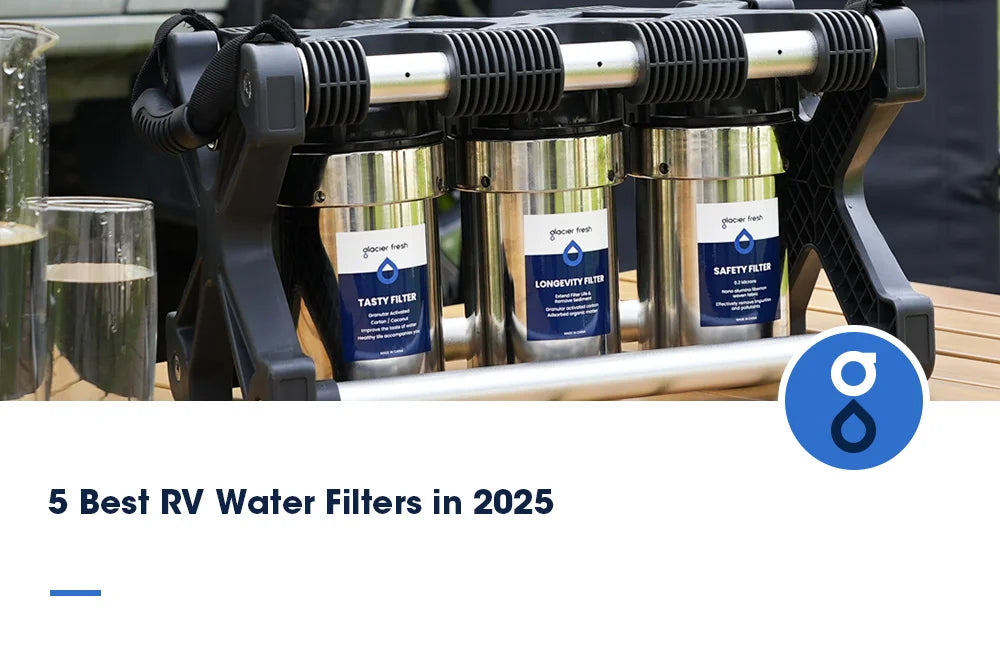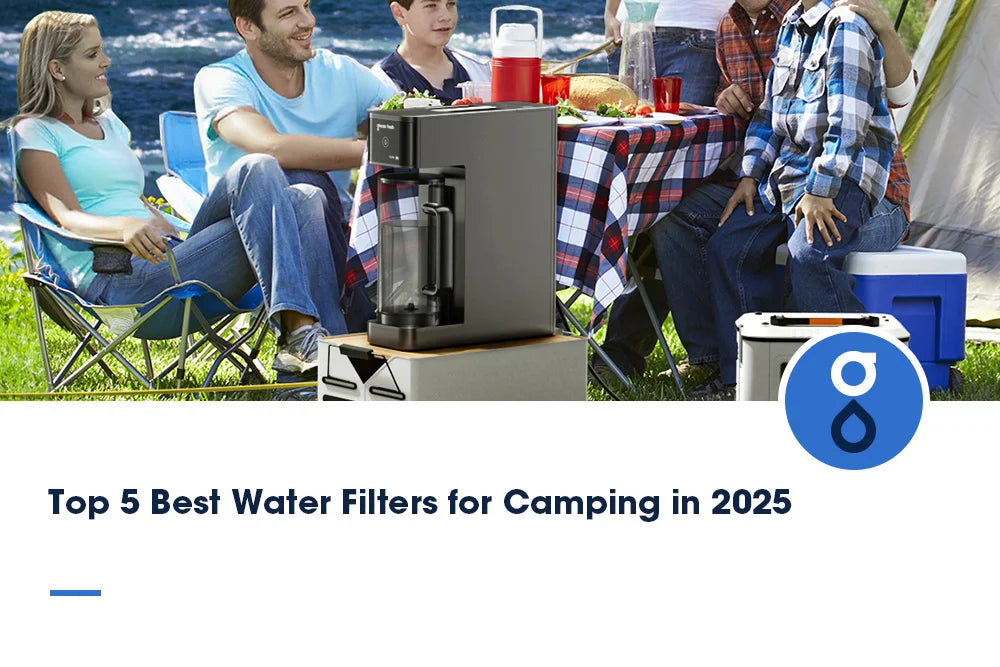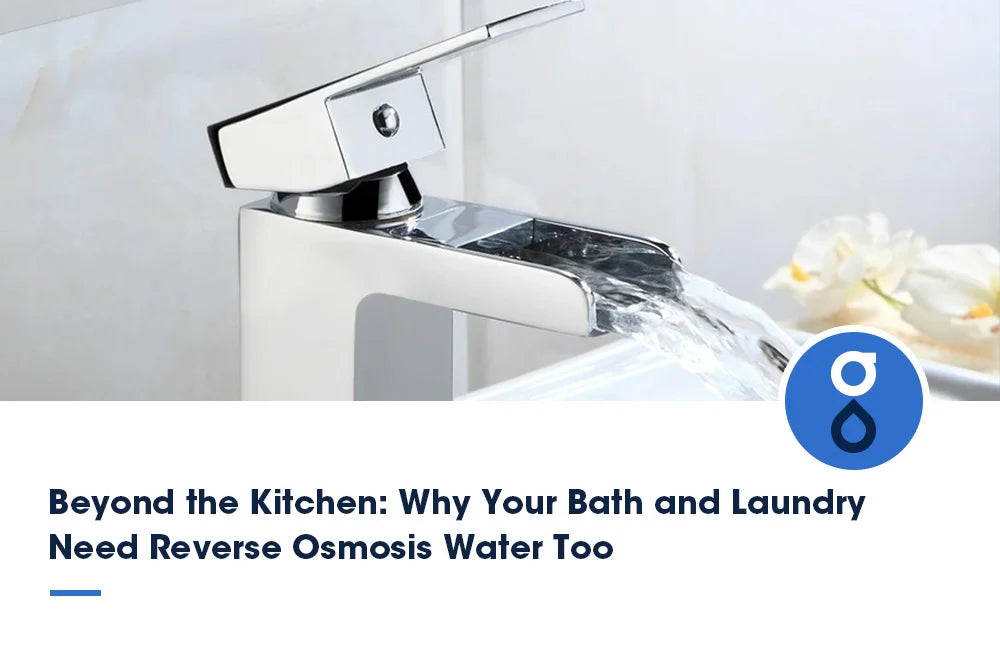Table of Contents:
Types of RV Water Filters
Factors to Consider When Choosing an RV Water Filter System
5 Best RV Water Filters
Installation Tips for RV Water Filters
How to Maintain Your RV Water Filter
FAQs
Conclusion
An RV trip means freedom and adventure, but one thing that every traveler is concerned about is access to clean and safe water. Water provided by campgrounds typically includes chlorine or sediments, or even contaminants, which may affect taste and health. This is why RV water filters are a must. These portable systems ensure you never run out of pure, fresh-tasting water to cook and drink.
In 2025, the market will have everything starting from low-cost inline filters to top-notch reverse osmosis units. This guide discusses the major classifications, considerations, and the 5 great RV water filters that exist today.
Types of RV Water Filters
There are various types of RV water filters, and each of the filtration types has its own advantages. Nevertheless, knowing about these types provides the benefit of being able to choose the system that suits your travelling style.
Inline Filters
The most popular water filter types for RVers are inline filters. They connect directly to your water hose and are easy to use. They do not have multi-stage filtration, but are compact, cheap, and effective in adding flavor and removing chlorine.
Canister Filters
These consist of one or multiple filter cartridges with a multi-stage process in many cases. They are capable of eliminating chlorine, sediments, and harsh chemicals. Canister systems are often bulkier and provide better filtration.
Reverse Osmosis (RO) Systems
The gold standard of purification is RO systems. They eliminate up to 99.9% of contaminants such as heavy metals, bacteria, and viruses. The disadvantage is that they need power, discharge wastewater, and may also be more expensive.
Sediment Filters
Ideal for pre-filtration, sediment filters trap rust, sand, and dirt before water enters your RV's plumbing. They prolong the life cycle of other filters and reduce damage in appliances.
Carbon Filters
Activated carbon filters are used to enhance the taste and to eliminate odors. Multi-stage systems often combine them with sediment filters to balance their performance.
Factors to Consider When Choosing an RV Water Filter System
You also need to consider your needs and preferences before investing in an RV water filter. Here are some key factors:
-
Filtration Level: Carbon filters enhance flavor and smell, but multi-stage or RO is most protective, particularly when off the grid.
-
Micron Rating: The smaller the rating, the smaller the contaminants can be trapped, e.g., 0.2 microns.
-
Filter Lifespan: The filter's lifespan can be measured in both time and volume, lasting a few months or filtering thousands of gallons.
-
Size & Portability: Small-sized systems are suitable when RVs have limited space to store the system.
-
Ease of Use: Cartridge changes are simple, and fittings are easy to install.
-
Budget: Inline filters are not expensive, whereas RO systems are more costly, but they offer better purification.
5 Best RV Water Filters
These five are the best to consider in 2025, both high-end and low-end options:
1. Glacier Fresh Auqago RV Water Filter System
AUQAGO RV Water Filter System is a robust 3-stage water filter with a 0.2-micron high flow filter, a 1 carbon filter, and a 1 sediment filter. They can eliminate chlorine, odors, dirt, and even microscopic particles. Connects easily with quick-connect stainless steel fittings and does not require electricity to operate. It is excellent for off-grid traveling.
This device gives 500 gallons per filter set and offers clean and crisp water without slowing down the flow. It is lightweight and small, which makes it fit in RV storage. The system is a favorite among full-time RVers with full-time performance, backed by a lifetime warranty and NSF certification.
2. Glacier Fresh 2-Stage RV Water Filtration System
A lighter, smaller alternative is the Glacier Fresh 2-Stage RV Filter. It employs a pleated sediment filter followed by a coconut shell carbon filter so that dirt and chlorine are both eliminated. Such a design enhances flavor and ensures that water is safe to drink and to cook.
It is also one of the most space-efficient systems at only 8.35 pounds. Filter lifespan is about six months, and installation is easy and fast due to stainless steel hose fittings. It is a smart option when a traveler needs good filtration without the physical weight of a larger system.
3. Glacierfresh RV Reverse Osmosis System
The Glacierfresh RV Reverse Osmosis System is ideal when RVers require the best purifying product. It is powered by a 0.0001-micron RO membrane and is capable of eliminating up to 99.9% of contaminants such as bacteria, viruses, heavy metals, PFAS, and pesticides.
It generates an average of 12 oz of purified water every minute and is capable of filtering up to 2,000 gallons in one single cycle of the filter. This system is FDA, FCC, and CA65 certified and provides unrivaled quality. It needs a 24V power source. Good news, the Elite version has a power bank that allows it to be off the grid. It is a high-value investment but suitable for serious travelers and boondockers.
4. Shurflo 9400950 Waterguard Universal In-Line RV Drinking Water Filter
Shurflo 9400950 is a simple inline filter. It attaches straight to your RV water system and eliminates chlorine, smells, and silt. Although it lacks the high degree of filtration that multi-stage units offer, it is convenient to carry, inexpensive, and also readily available with regard to compatibility with RV hoses. It is a time-saving option for campers who need a no-nonsense approach.
5. Camco Tastepure Kdf/Carbon RV Water Filter 40043
A long-time RVer favorite, the Camco Tastepure 40043 uses a KDF in combination with carbon filtration to reduce chlorine, odors, and sediments. It is compact and inexpensive, making it ideal for any casual RVers since it only needs to enhance the quality of water at the campgrounds. It is also accompanied by a hose protector, which is flexible to minimize the stress on connections. Though not as sophisticated as Glacier Fresh systems, it is a reliable low-end offering.
Installation Tips for RV Water Filters
The installation process of most RV water filters is simple. Always flush fresh filters several minutes before use to eliminate carbon dust. To avoid leaks, plumber's tape can be used, and when multiple filters are put in place, it is advisable to initially place the sediment filters prior to carbon or RO units in order to ensure an increase in their effectiveness. The installation is convenient and can be made without tools in many modern fittings, which use the quick-connect type. Proper installation and regular maintenance are both key—don’t forget the essential aspects of water filter care that many RVers miss.
How to Maintain Your RV Water Filter
Long filter life requires proper maintenance of the filter to provide safe water. Experts state that forgetting to change filters in time is one of the biggest mistakes. The majority have to be changed after every three to six months. Additional important measures must also be put into consideration, like flushing a new cartridge, the housings, inspecting O-rings, and also storing filters that are not required but in a cool and dry environment. Contamination is also kept away by using quality hoses. Your RV water filters will provide safe and clean water with a routine cleanup.
FAQs
1. How often should I replace my RV water filter?
It's recommended to replace your RV water filter every 3 to 6 months. This depends on factors like your water quality and how frequently you use the system.
2. Do RV filters remove bacteria and viruses?
Standard filters can not remove bacteria and viruses. Thus, choosing an advanced system, such as reverse osmosis, can bring you safe and pure water.
3. Can I use household filters in my RV?
No, household filters are not suitable for RV use. RV filters are specifically designed to be portable and connect directly to an RV water hose.
4. Will a filter affect my RV’s water pressure?
A high-quality filter should not significantly impact your RV's water pressure. Brands like Glacier Fresh are specifically designed with high flow rates to ensure a steady, even flow.
5. What’s the best choice for off-grid camping?
The Glacierfresh Reverse Osmosis System is suited to rivers, lakes, or doubtful sources. It’s a solid choice for camping anywhere on your RV trip.
Conclusion
Safe and enjoyable travel in RVs requires clean water, and the selection of appropriate RV water filters guarantees a calm mind on the road. Inline lines, such as the Camco Tastepure, are basic, inexpensive, and take little time, whereas systems at the highest end of the spectrum, such as the Glacierfresh Reverse Osmosis, offer maximum protection. When you have a chance to review your needs, budget, and space, you can choose a perfect system that keeps your water fresh wherever you go. Reverse osmosis water is not only clean but also healthy to drink, providing peace of mind for long-term RV travel.



















